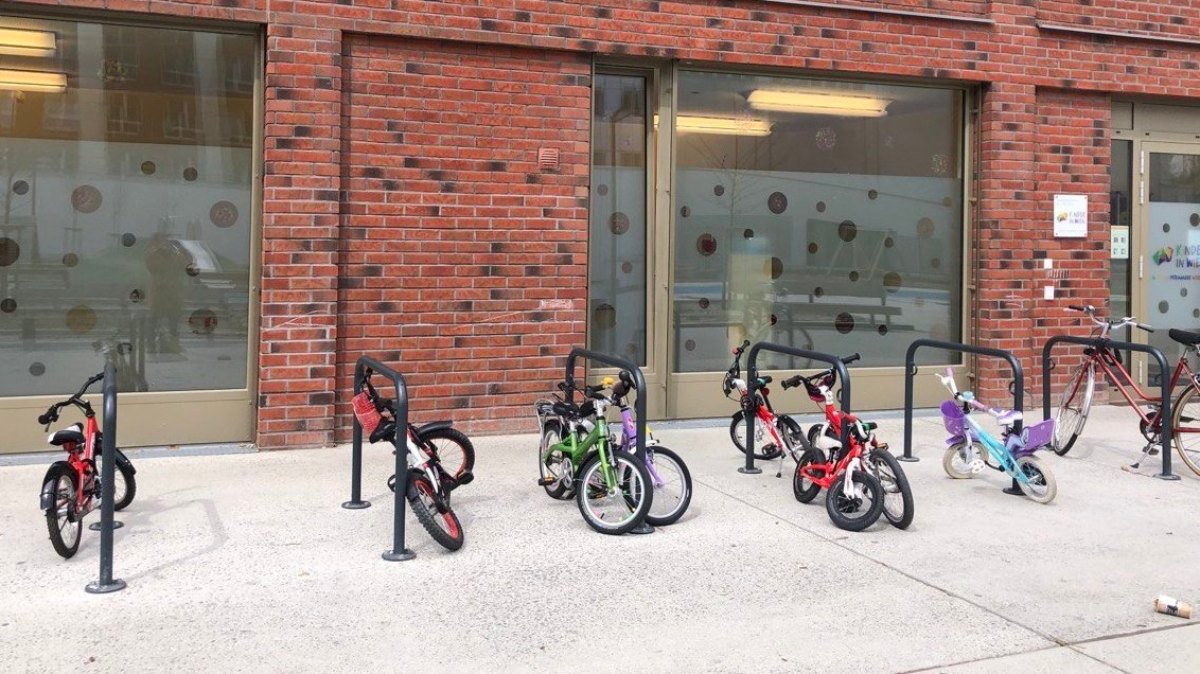
A Bicycle for Every Child: New Digital Booklet Draws On International Inspiration
How can all children get access to a bicycle from an early age? A new digital booklet showcases inspirational children’s cycling initiatives and best practices from around the world.
Bicycles enable children to participate in their community, travel between school and home, explore their cities and stay active and healthy. But too many children do not have access to bicycles and miss out on these opportunities, even in leading cycling nations like the Netherlands.
On 15 April 2021, Tour de Force (TDF), the Dutch Cycling Embassy (DCE) and Mobycon presented their new digital booklet, “International Inspiration for the ‘A Bicycle for Every Child’ Approach”, at an online launch event that the European Cyclists' Federation (ECF) participated in. The booklet highlights a variety of international initiatives that enable children of all backgrounds to make cycling a part of their lives.
Launching the booklet, the event hosted a panel discussion between high-level experts in cycling advocacy, including Jill Warren, CEO of ECF. Commending the booklet, Warren stressed how important it is for children to have access to a bicycle, so they are encouraged to begin cycling at a young age: “A lot of our lifelong habits are formed in childhood. We at ECF believe that riding a bicycle is a healthy and sustainable lifelong habit that everyone should acquire and keep practicing as long as possible."
The overall aim of the booklet is to gather international inspiration for the Dutch Ministry of Infrastructure and Water Management on children’s cycling initiatives. Mobycon, who usually share their expertise on Dutch cycling initiatives with other countries, reversed their role for this booklet to collect information on initiatives from around the world to share within the Netherlands.
A Cycling Country
The Netherlands is widely regarded as a world leader when it comes to cycling. Adolescents between the ages of 12 and 17 spend an average of 26 minutes a day on a bicycle, using it for 55% of their journeys. Moreover, girls in the Netherlands cycle almost as much as boys; in no other country do girls cycle this much.
However, there are still thousands of children across the country who do not cycle, often because they do not have access to a bicycle. According to the booklet, 1 in 9 children in the Netherlands are growing up in poverty, meaning buying a bicycle is simply too expensive.
As part of TDF’s ambitions to increase cycling statistics by 2027, this digital booklet will help local municipalities and authorities to develop well-run operations that collect, repair or provide access to bicycles for children. One of TDF’s key goals is to achieve “an increase of 20 percent in the amount of bicycle kilometres in 2027, compared to 2017.” As can be construed from Warren’s comments, one of the best ways to achieve such a widespread increase in cycling is to ensure children and young people begin riding bicycles early in their lives, forming a longstanding habit and contributing to a culture of cycling.
Already in the Netherlands, initiatives are being conducted to get more young people cycling. In 2015, ANWB (the Royal Dutch Touring Club) launched its Children’s Bicycle Plan, providing many children growing up in poverty with a bicycle. Other pilots are currently being carried out in more than fifteen cities throughout the Netherlands, aiming to establish long-term relationships with local partners that can easily access target groups.
Drawing on the international inspiration highlighted in the booklet, these pilots represent the initial steps in ensuring that the Netherlands achieves “A Bicycle for Every Child”, further increasing its reputation as a prominent cycling nation.
The booklet can also be used by other countries and cities across the globe that are looking to start their own children’s cycling initiatives. Available online in English, its invaluable insights can help boost cycling amongst young people not only in the Netherlands but on a broader international scale as well.
You can download a free digital copy of the booklet here. You can watch the booklet’s online launch event here.
Cover photo source: ADFC Berlin/Lisa Feitsch
Regions:
Contact the author
Recent news!
Upcoming events
Contact Us
Avenue des Arts, 7-8
Postal address: Rue de la Charité, 22
1210 Brussels, Belgium









